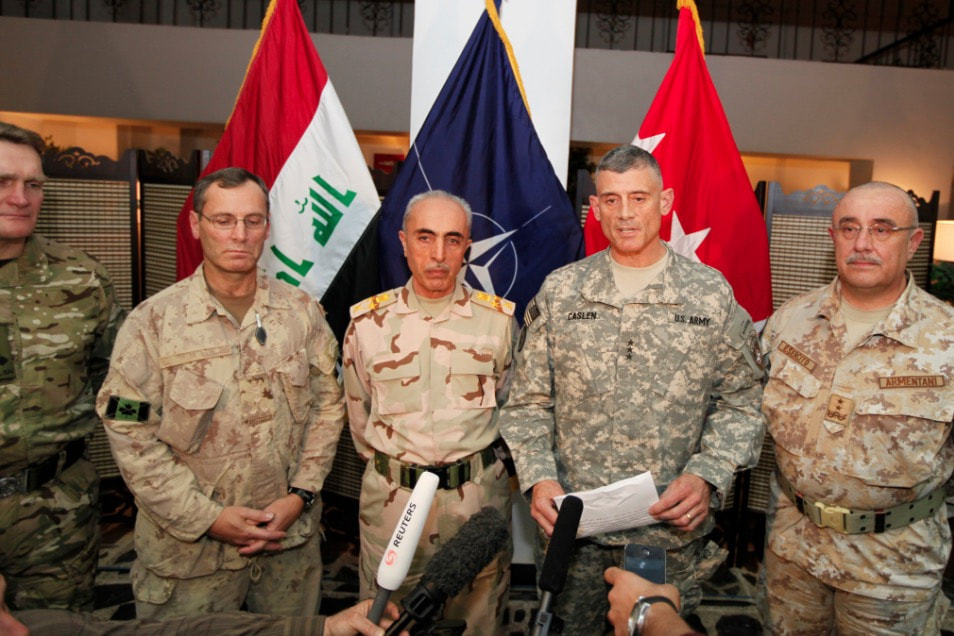The question of which horse to back is determined by whether each can survive the race before the set date of May 2018. Militia units, the newest bloc in town, are scoring highly as is former premier Nouri al Maliki, backed by the same donor.
With only pockets of Islamic State fighters remaining, new shifts and strategies are taking over and shaking up the political theatre and its fellow actors.
Six months before the race draws to an end, current prime minister Haidar al Abadi is coming in last, having failed to purge institutions of the state from corruption.
Their mandate is nearing its expiration but moves are being taken for the group to secure a more permanent foothold.
In a video leaked on social media, men, old and young, are counting wads of paper cash that carpet a room whose back wall bears a A’Hashd A’Shaabi emblem that reads ‘housing for the martyrs of the Popular Crowd’ (PMU).
One of the voices is heard asking counters to keep their eyes peeled for foreign currency, in other words, hard cash. The papercash afloat are donations collected from members of the Iraqi public and pilgrims during last month’s Shia Arbaeen pilgrimage.
Unaccounted for cash transactions are commonplace in the new Iraq, but likely to thrive and underwrite state-led transactions in a state commanded by militias.
The biggest transformation the election of a PMU prime minister could motion, would manifest itself in Iraq’s political playing field and in the behaviour of neighbouring allies and most importantly, America.
The heaviest price might be paid by America if Abadi’s successor delivers on the promise of ending once and for all, America’s undesired stay in Iraq.
Badr Corps militia commander Hadi al Ameri informed Presstv last week that American forces will be expelled with Parliamentary approval, without the exception of ‘a single soldier’.
“The US wants to transform Iraq into its own field” and “the Islamic resistance” will not stand for this, Ali al Yasseri, Popular Mobilization Units Spokesman told Afaq TV, referring to the holy alliance between his forces and Tehran.
“America chooses those most unlikely to oppose its foreign policy designs” Yasseri conceded, alluding that 2018 will be the start of America’s end.
When quizzed about Iraq’s alliance with Saudi, Yasseri offered less than firm answers.
While criticising the collusion between Saudi and the Islamic State, Yasseri confidently said that the border the two countries share is key to their relations, and that Saudi would never violate Iraq militarily.
As for the Baghdad-Ankara alliance this has gone from strength to strength since the annulment of referendum results.
Mutual trade interests are too valuable to overwrite politics, however the Iraqi state conducts itself and treats citizens.
France, so far, has been the only state to have called for “a gradual demilitarisation” of the militia organization. It’s calls instigated a fierce rebuttal as leading Dawa party candidate Maliki accused French President Macron, of meddling, citing Macron’s constitutional obligations.
US state of Secretary Rex Tillerson remarks in October this year for Hashd fighters to “go home” invited similar scorn.
“We are targeted because we are resisting other powers and thwarting their plans in Iraq” Yaseri said, with regained conviction.
He spoke of a grand conspiratorial scheme to destabilise Iraq to the point of no return, and warned against foreign powers other than Iran that, as he describes, seek to “raise the roof of sectarian strife”.


 RSS Feed
RSS Feed